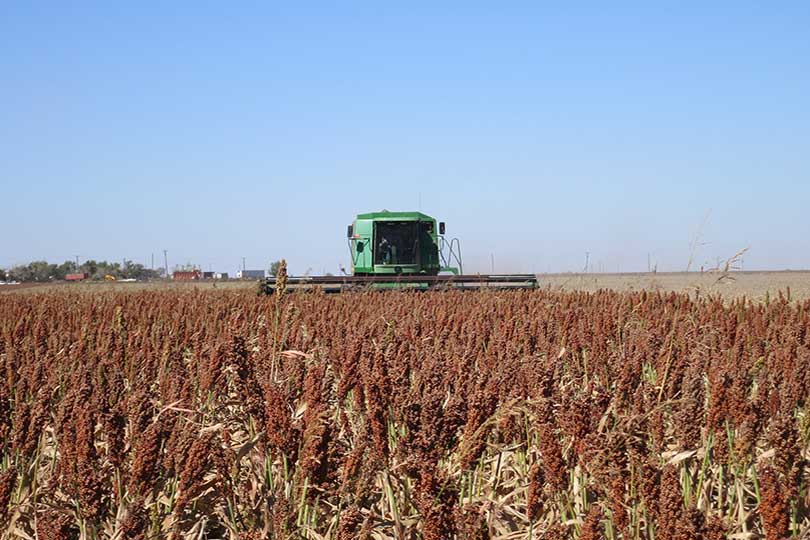By Jessica Domel
News Editor
There’s good news for grain sorghum growers across Texas. The Environmental Protection Agency (EPA) has approved an emergency request to allow farmers to use the popular insecticide Transform WG in the battle against prolific and damaging sugarcane aphids.
“The availability of Transform WG is crucial to helping sorghum farmers combat the sugarcane aphid,” Tim Lust, chief executive officer of National Sorghum Producers (NSP), said. “We thank the U.S. Environmental Protection Agency for their approval of this important crop protection tool, which augments industry efforts to develop better management practices and resources to meet this unprecedented challenge.”
Transform, or sulfoxaflor, is produced by Dow Agrosciences LLC.
EPA cancelled registration for sulfoxaflor in November after the Ninth Court of Appeals ruled there was not enough information in the insecticide’s packet regarding the potential impact on honeybees.
Texas Farm Bureau (TFB) and the sorghum organizations fought for the right to again use Transform to protect crops.
TFB submitted supportive comments to the EPA about members’ need for Transform to control the sugarcane aphid in grain sorghum.
“If our members were unable to use Transform, they would suffer yield losses and a decline in profits,” Brant Wilbourn, TFB associate director of Commodity and Regulatory Activities, said. “The sugarcane aphid could have also built resistance to the other insecticide that is available to control the aphid.”
TFB also engaged its members and encouraged them to submit comments to the EPA through VoterVoice about why Transform was important to their sorghum operation and how they could be affected by the inability to use Transform.
“This Section 18 Emergency Exemption is important because it gives sorghum growers another tool in the toolbox to fight the sugarcane aphid,” Wilbourn said.
The letter granting Texas a Section 18 exemption for use under the Federal Insecticide, Fungicide and Rodenticide Act includes several modifications and restrictions on the use of Transform, including a new restriction designed to prevent exposure to honeybees.
Use of the spray is now prohibited within three days or less of pre-bloom or after seed set.
The exemption, which remains in effect for one full year, was greeted with joy by sorghum groups who fought for use of Transform.
“We’re really excited,” Wayne Cleveland, executive director of Texas Sorghum Producers, said in an interview with the TFB Radio Network. “I think the odds were against us.”
Cleveland explains that when battling a pest like the sugarcane aphid, which reproduces and spreads very quickly, more than one insecticide is needed for control.
“This is a great victory for our organization and the producers who support us,” Cleveland said.
Transform is joined on the market by Sivanto, which is made by Bayer CropScience.
Both insecticides work at the same active site to fight the aphids, but are different classes of chemicals.
Texas sorghum grower Charles Ray Huddleston of Collin County says both are needed to protect sorghum crops.
“It’s good to have more than one chemical to use so we don’t take a chance on the insect developing a resistance to one of them,” Huddleston said. “It’s good to have a variety of products you can use.”
A sugarcane aphid population can go from a few bugs to hundreds, if not thousands, in a matter of days.
The aphids feed on grain sorghum sap, damaging the plant and leave sticky “honeydew” on the plant that can gunk up machinery and halt harvest altogether.
Entomologists encourage sorghum farmers to scout their fields often for the pests as early detection is key to controlling the aphids and reducing yield loss.
“When I first heard about them, the year before I had them, I had a mechanic tell me how it plugged up the combine inside,” Huddleston said. “The year before last, when I had them so bad, I made sure I scouted them and made sure I kept them out as best I could.”
Last year, Huddleston wasn’t so lucky.
“I let them get away from me, and they really damaged the crop. They stunted heads and I didn’t really get a grain fill,” Huddleston said.
Untreated, sugarcane aphids can lead to loss of an entire crop or render it unharvestable.
“They’re trouble,” Hudd

